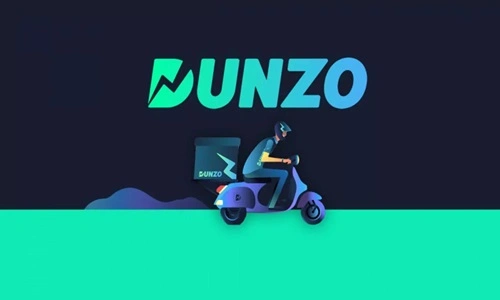Dunzo, a hyperlocal delivery platform based in India, has become a household name for its quick and convenient delivery services. Launched in 2015 by Kabeer Biswas, Ankur Aggarwal, Dalvir Suri, and Mukund Jha, Dunzo started as a small WhatsApp-based delivery service in Bengaluru and has now grown into one of India’s leading quick-commerce platforms. Dunzo allows users to get almost anything delivered to their doorstep, from groceries and medicines to parcels and documents.
This article explores Dunzo’s business model, revenue streams, and the strategies that make it one of the most innovative players in the on-demand delivery market.
Dunzo’s Business Model Overview

Dunzo operates on a hyperlocal on-demand delivery model, connecting users with nearby delivery partners and merchants. Its services revolve around convenience, catering to individuals and businesses who need quick and reliable deliveries within a city.
Key Services Offered by Dunzo:
- Grocery and Essentials Delivery (Dunzo Daily): Delivery of groceries, fresh produce, and daily essentials within minutes.
- Parcel Delivery: A hyperlocal courier service for sending packages, documents, or items within the same city.
- Medicine Delivery: Tie-ups with pharmacies to deliver medicines.
- Pet Supplies and Food Delivery: Delivery of pet essentials and food items.
- Pick-and-Drop Services: Custom services like picking up keys, forgotten items, or small parcels.
Dunzo leverages technology to match delivery requests with nearby partners and merchants efficiently. Its mobile app serves as the core platform for placing and managing orders.
How Does Dunzo Earn Money?
Dunzo generates revenue through multiple streams, leveraging its diverse range of services and partnerships. Here’s how the platform earns money:
a. Delivery Charges
- Dunzo charges users a delivery fee based on the distance, order value, and urgency of the delivery.
- During peak hours or for high-demand services, dynamic pricing applies, increasing the delivery fees and boosting revenue.
b. Commissions from Merchants
- Merchants, such as grocery stores, pharmacies, and restaurants, partner with Dunzo to reach customers through the platform.
- Dunzo earns a commission (typically 10–20%) on each order placed through its platform, paid by these merchants.
c. Subscription Plans (Dunzo Plus)
- Dunzo offers a subscription service called Dunzo Plus, providing benefits such as free deliveries, reduced surge pricing, and exclusive offers.
- This subscription-based model generates recurring revenue while increasing customer retention.
d. Advertising Revenue
- Dunzo monetizes its platform by offering advertising space to merchants and brands. These include:
- Sponsored listings: Merchants pay to appear at the top of search results.
- Banner ads: Featured ads on the app’s homepage.
- Brands use these features to increase visibility and drive sales.
e. Partnerships with Businesses
- Dunzo collaborates with businesses to offer corporate delivery solutions, helping them manage logistics and deliveries for employees or customers.
- Businesses pay for these services, creating an additional revenue stream.
f. Dark Store Model (Dunzo Daily)
- For its Dunzo Daily quick-commerce service, the company operates dark stores (small warehouses) that stock essential items. Dunzo generates revenue by selling these items at a margin.
- The dark store model enables Dunzo to control inventory and ensure fast delivery (usually within 19–30 minutes).
g. Logistics as a Service (LaaS)
- Dunzo offers its logistics infrastructure to third parties for deliveries. This service is particularly valuable for small businesses that lack their own delivery capabilities.
- Businesses pay a fee for using Dunzo’s fleet of delivery partners.
Why Dunzo’s Model Works
Dunzo’s business model thrives on efficiency, convenience, and its ability to cater to diverse customer needs. Here’s why it works:
a. Hyperlocal Focus
- Dunzo’s operations are hyperlocal, meaning it caters to small, geographically defined areas, allowing it to deliver items quickly and efficiently.
b. Diverse Offerings
- The platform’s flexibility allows users to order a wide range of items, from groceries to forgotten keys, making it indispensable for urban consumers.
c. Technology Integration
- Dunzo leverages AI and machine learning to optimize delivery routes, match demand and supply, and predict order fulfillment times accurately.
d. Partnerships
- Dunzo’s partnerships with merchants and brands not only increase its product offerings but also serve as a steady revenue stream through commissions.
e. User Loyalty
- Subscription plans like Dunzo Plus incentivize users to make repeat purchases, ensuring consistent revenue.
Financial Performance and Growth
Revenue Growth
- Dunzo’s revenue has grown significantly over the years, driven by its expanding user base and diversified offerings. As of 2024, the company reported annualized revenue of over ₹700 crores.
Funding and Valuation
- Dunzo has raised significant funding from investors like Google, Reliance Retail, and Lightstone Fund, with a valuation of over $800 million.
- These investments have helped the company scale its operations and invest in technology and infrastructure.
Challenges and Opportunities
Challenges
- High Operating Costs:
- Maintaining a large fleet of delivery partners and operating dark stores incurs substantial costs, impacting profitability.
- Intense Competition:
- Competitors like Swiggy Instamart, Blinkit, and BigBasket pose significant challenges in the quick-commerce space.
- Customer Retention:
- Ensuring loyalty in a market driven by discounts and convenience requires consistent innovation and quality.
Opportunities
- Geographic Expansion:
- Expanding into Tier 2 and Tier 3 cities offers significant growth potential as these areas embrace digital services.
- Focus on Dark Stores:
- Scaling the dark store model can help Dunzo reduce delivery times and improve margins.
- Integration with Reliance Retail:
- As part of its investment from Reliance, Dunzo can tap into Reliance Retail’s vast supply chain and customer base.
- Corporate Partnerships:
- Expanding logistics services for businesses can open new revenue opportunities.
Future Prospects
Dunzo’s future looks promising, with its focus on innovation, customer satisfaction, and operational efficiency. The company plans to:
- Scale its dark store operations to meet the growing demand for quick commerce.
- Expand its subscription offerings to build a loyal customer base.
- Leverage partnerships with Reliance Retail to optimize inventory and supply chain operations.
- Invest in technology and automation to improve delivery efficiency and reduce costs.
Conclusion
Dunzo’s hyperlocal delivery model has redefined convenience for urban consumers in India. By combining diverse revenue streams such as delivery fees, commissions, subscriptions, and advertising, the platform has created a robust business model that caters to individual and business needs alike. Despite challenges like competition and high operating costs, Dunzo’s strategic focus on quick commerce, technology, and partnerships positions it for sustained growth in the evolving on-demand delivery market. With continued innovation and geographic expansion, Dunzo is poised to maintain its leadership in India’s hyperlocal delivery ecosystem.

